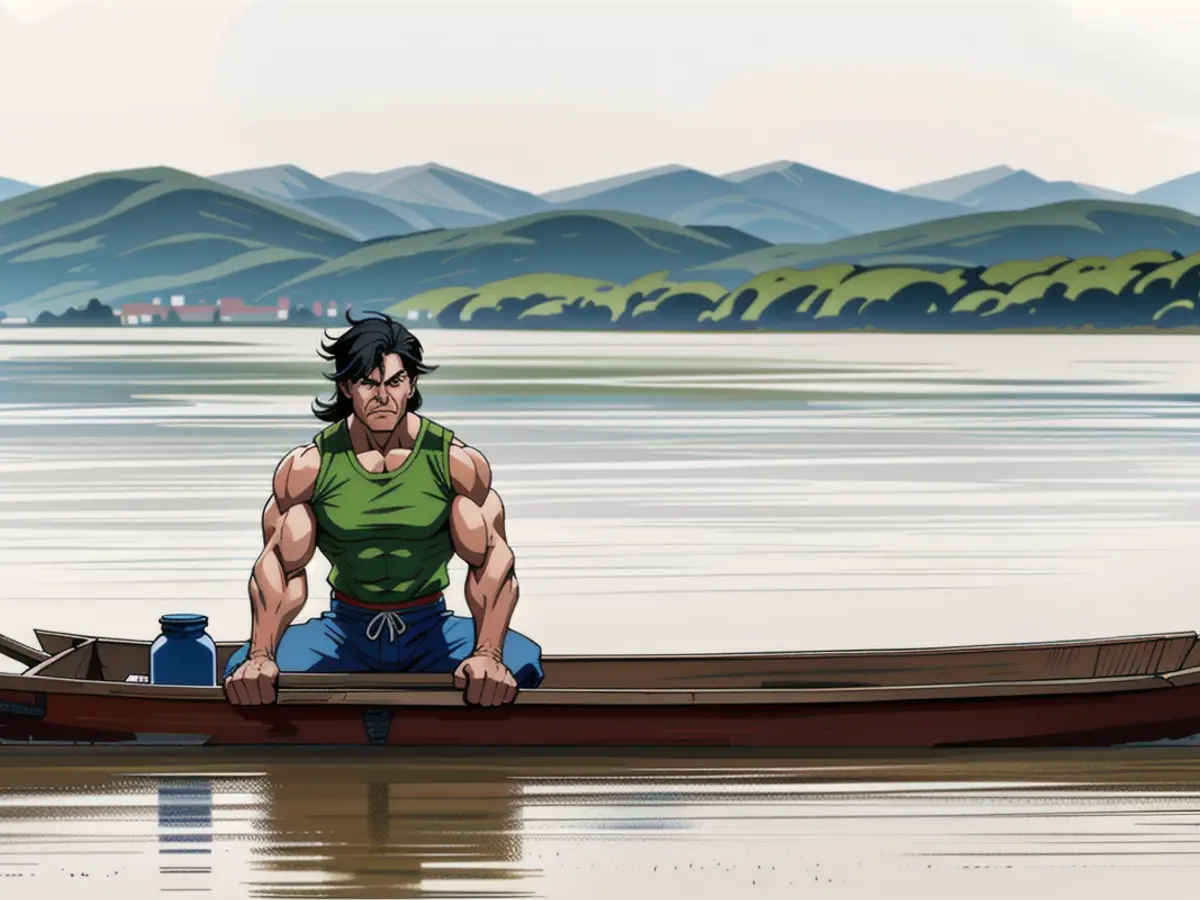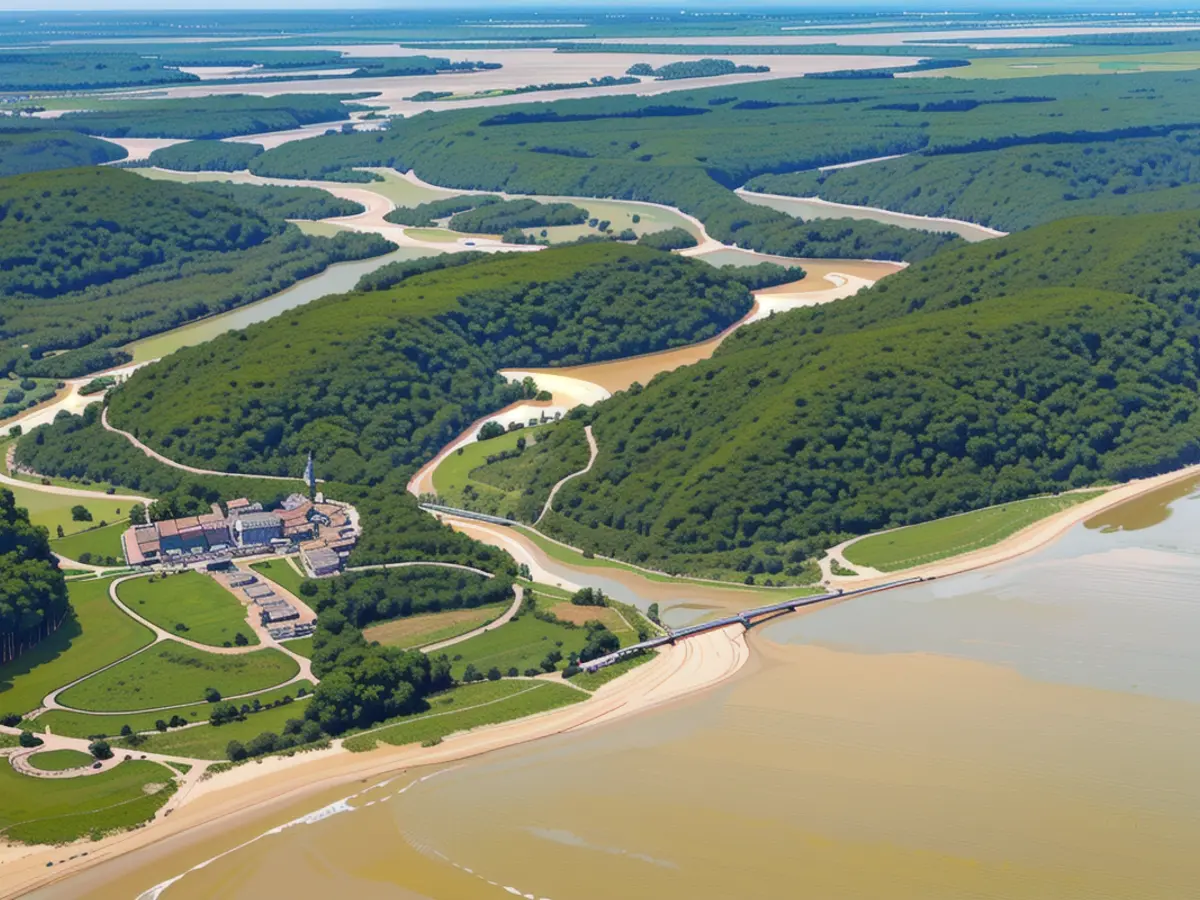River Designated as Legal Entity: After Decades of Oil Spills, Potential for Transformation May Arise
Revamped Article:
Listen up, pals! Let's dive into the captivating tale of the Marañón River, a winding waterway that flows through the heart of Peru, connecting the snow-capped Andes to the Amazon Rainforest. This river isn't just another body of water - it's a lifeblood. A lifeblood that's been tainted by human intervention and shed a light on a courageous battle for environmental justice.
Back in the year 2000, more than 5,000 barrels of crude oil gushed into the Marañón, coating its surface in a black layer of destruction. This wasn't a one-off incident - it was one of numerous oil spills that have sourced the river's beauty and plagued the communities living alongside it. A pipeline runs alongside the river, supplying Peru's oil and gas heartlands, and over 80 oil spills have occurred along it between 1997 and 2022, according to Peruvian authorities.
Against all odds, one woman refused to accept this as the river's destiny. Mari Luz Canaquiri Murayari, a member of the indigenous Kukama community, was moved to action when she witnessed the river's transformation. Established in the aftermath of the spill, her organization, Asociación de Mujeres Huaynakana Kamatahuara Kana, or HKK, has spent over two decades fighting for the Marañón's protection.
Last year, their perseverance was rewarded when the federal court of Peru recognized the Marañón River as a living entity, bestowing it with the right to remain free-flowing and untainted. In recognition of her relentless efforts, Canaquiri Murayari received the Goldman Environmental Prize, an award granted annually to six grassroots environmental champions from around the world.
The Kukama people view the Marañón as a sacred being, with their ancestral spirits residing within its depths. Canaquiri Murayari recounted hearing of an ominous warning from her deceased uncle. As the plague of oil spills grew, so did the number of dying fish and endangered species, testaments to the river's suffering. This impacted the Kukama's livelihoods, as they rely on the river for transportation, agriculture, water, and fishing. Faced with limited alternatives, the community was left with no recourse but to eat fish from the contaminated waters and drink the polluted water.

Unsurprisingly, this led to numerous health problems. Research showed high levels of lead in the bloodstreams of local residents and increased levels of mercury, arsenic, and cadmium in the urine of those consuming river fish or those with gardens near oil spill sites. Despite repeatedly voicing their concerns and attempting to raise awareness through strikes, marches, and blockades, the authorities paid no heed to their pleas.
In search of a new approach, Canaquiri Murayari turned to the Legal Defense Institute, a Peruvian NGO. Together, they explored legal strategies for protecting the Marañón and found inspiration in the growing movement to recognize the rights of nature. This passionate pursuit led them to petition the court for the legal personhood of the Marañón River, granting it protection from oil spills and other environmental threats, like dredging and hydroelectric projects.
After two years of litigation, the court ultimately came to their side, ruling in favor of the Kukama and granting the Marañón River its legal personhood. This groundbreaking decision gave the river the right to exist, to flow freely, and to remain uncontaminated. The court also recognized the Kukama community and other indigenous groups as its guardians, empowering them to act on behalf of the river and its rights, ensuring a brighter future for generations to come.
This verdict marked a turning point for the Kukama and caught the attention of the global community. Javier Ruiz, an environmental policy and climate change expert, lauded the decision as a "first-of-its-kind in Peru." Yet Canaquiri Murayari acknowledges that the battle is far from over - this decision serves as a stepping stone in their quest for a cleaner, healthier Marañón. With renewed resolve, she'll continue to work alongside the Legal Defense Institute and others to ensure the ruling is enforced and the river is protected for generations yet to come.
The world is at a pivotal moment. We must take a stand for our environment and learn from the Kukama's powerful example. As Canaquiri Murayari poignantly puts it: "The work I'm doing is not just for my community - it's for the world. Because we need to do something, we need to fight together to leave the world for the next generation." And that's a legacy we can all strive for.
- The Marañón River, a significant waterway in the Americas, forms a connection between the Andes and the Amazon Rainforest, serving as a crucial link not only for the world's wildlife but also for the health and wellness of numerous communities residing nearby.
- In the wake of the 2000 oil spill that coated the Marañón River, there has been a steady onslaught of environmental issues perpetrated by activities such as dredging, hydroelectric projects, and oil spills that have contributed to climate change and put the river's biodiversity at risk.
- After decades of relentless advocacy, Mari Luz Canaquiri Murayari, a grassroots environmental hero from the Kukama community, was successful in securing recognition for the Marañón River as a living entity, providing it with legal personhood that defends its rights to remain free-flowing and untainted from environmental threats like oil spills.
- However, the struggle does not end here; Canaquiri Murayari and her alliance continue their fight to enforce the ruling and protect the river from further degradation, setting an inspiring example for the global community to follow in the face of climate change and environmental deterioration.
- In the pursuit of safeguarding the Marañón River, Canaquiri Murayari's fight transcends the boundaries of her community, urging people to recognize the shared responsibility towards the environment's preservation for the benefit of future generations and the betterment of the world as a whole.




